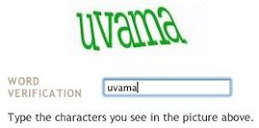Use the type of clause, phrase, or grammar indicated to complete the following sentence; you can add the phrase or clause before or after (not both) to the clause below:
...it will be good to have some time off over the Easter holiday...
1. Use a phrase 2. Use a dependent clause 3. Use an independent clause
Monday, March 30, 2009
Subscribe to:
Post Comments (Atom)


6 comments:
1. Without any doubt, it will be good to have some time off over the Easter holiday.
2. As I told you before, it will be good to have some time off over the Easter holiday.
3. I am really tired, it will be good to have some time off over the Easter holiday.
1. We have been working very hard up to now; it will be good to have some time off over the Easter holiday.
2. I was thinking how it will be good to have some time off over the Easter holiday.
3. It will be good to have some time off over the Easter holiday, don't you agree?
1) It will be good to have some time off over the Easter holiday this year.
2) My wife suggested that it will be good to have some time off over the Easter holiday.
3) It will be good to have some time off over the Easter holiday; I didn't get to enjoy the festivities last spring.
SAADAT:Good, but in #3 you need a semicolon instead of the comma;-)
INGRID:#1--this is an independent clause (subject--we + verb--have been working); #2--You have an added an independent clause again, abd you have changed the original independent clause into a dependent one by starting it with "how"; #3--yes.
MAYA: #1--good; #2--you have changed the original independent clause into a dependent one;#3--good.
Thank you Veronica,
3. I am really tired; it will be good to have some time off over the Easter holiday.
SAADAT: Thank you:-)
Post a Comment